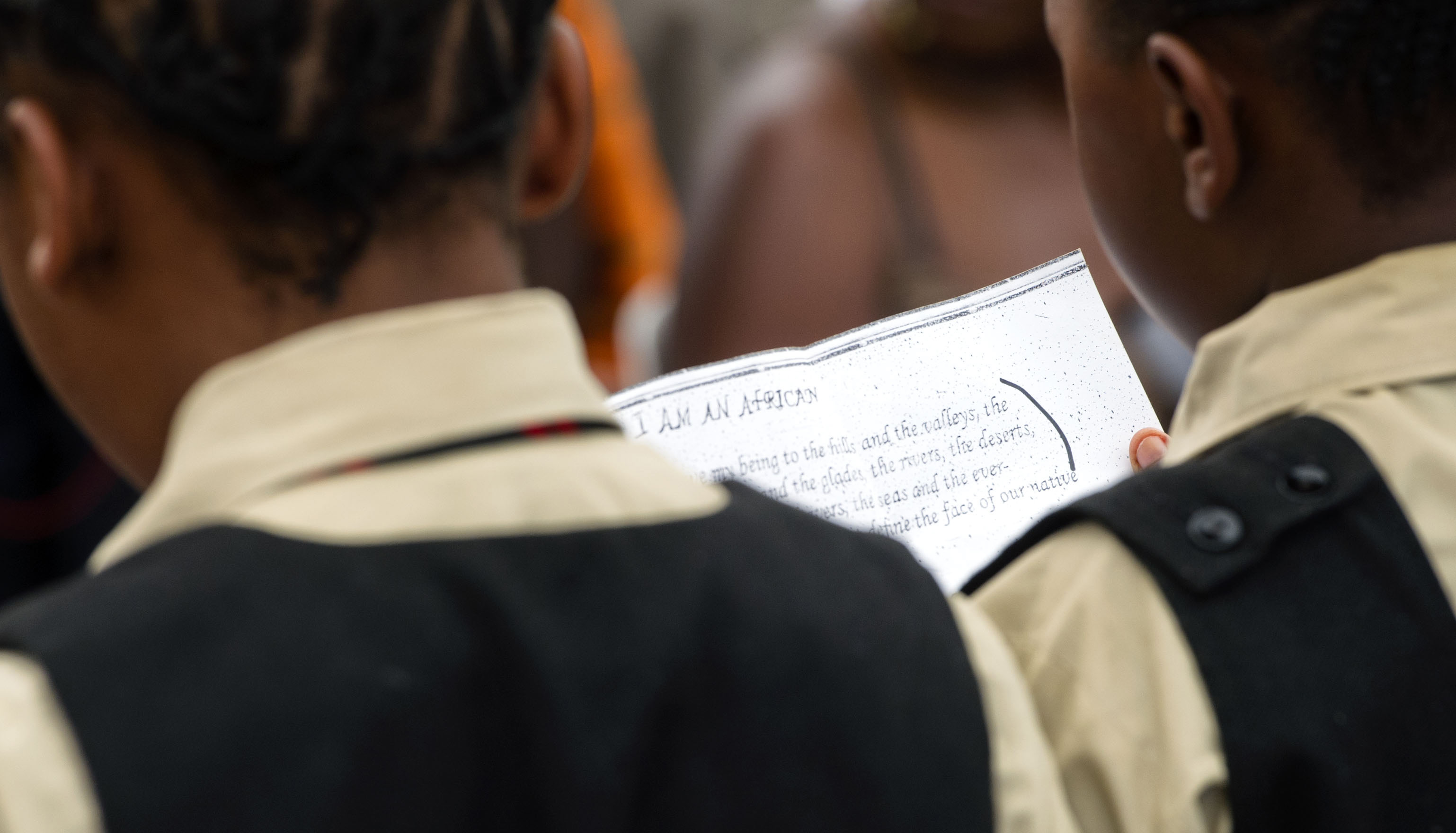IMPOSSIBLE TO COMPREHEND OP-ED
When art imitates life — lessons from Yizo Yizo for South Africa’s literacy crisis

Failing to master foundational skills like reading with comprehension haunts progressed learners in later years. Subsequently, most learners in grades 10, 11 and 12 (in quintile 1–3 schools) are over-age for their grade.
Mantwa is in Grade 11. Despite her age and the fact that she is one year away from finishing school, Mantwa struggles to read, which makes learning, understanding and memorising other concepts all the more difficult.
If you’re shocked that Mantwa is nearing the end of her school career yet unable to read with comprehension, you may find short-lived solace in knowing that she is a fictional character from South Africa’s most successful drama series, Yizo Yizo, now streaming on Netflix. But in our country, Mantwa’s story is the lived reality of far too many children in low-resourced public schools.
New research shows that 81% of South Africa’s Grade 4 learners cannot read for meaning in any of the 11 official languages.
This unearths a slew of problems that education experts have highlighted in recent weeks, from overcrowded classrooms, to challenges in teaching malnourished children, to the difficulties associated with learning in one’s home language in the first three years of school before switching to English in Grade 4 — often to the detriment of children who have not mastered literacy skills in their home language before being told to switch.
However, little has been said about the Department of Education’s Promotion and Progression Policy which appears to facilitate the movement of children through the system without them achieving the educational outcomes envisaged in each education phase. If this persists, today’s Grade 4 learners who are struggling to read, may not fare much better than Mantwa did in Grade 11.

School learners read to Minister of Basic Education Angie Motshekga (not pictured), who listens at the launch of the Nedbank Back to School project on 9 January, 2013 at N’wa Mingha Primary School in Sualsville, Pretoria, South Africa. The project provides learners with school uniforms and other necessities needed. (Photo: Gallo Images / Foto24 / Deaan Vivier)
The Promotion and Progression Policy
How did the fictional Mantwa make it to Grade 11 even though she struggles to read? The Basic Education Department’s Promotion and Progression Policy and how it’s implemented is partly responsible.
The principle of this policy is that a learner cannot spend more than four years in one phase. In exceptional cases, a learner may be given permission to repeat a year more than once per grade/phase.
Basic education is divided into four phases: foundation (Grade R–3), intermediate (Grade 4–6), senior (Grade 7–9) and further education and training (FET, Grade 10–12).
Each phase has three grades, which means a learner is only allowed to fail once per phase. Thereafter, they are progressed to the next grade even if they do not meet the promotion requirements.
Each phase has specific requirements related to percentage passes for each subject. If a child does not learn how to read and write in the first phase and doesn’t get the catch-up support they need, it’s likely that they will struggle even more in later grades, and eventually drop out of school.
The policy was implemented as early as 1998 (but only in 2013 in the FET phase). The idea behind the policy is to ensure they don’t get stuck in the schooling system, but it hasn’t been working as intended. The policy assumes that progressed learners are getting the necessary support they need to catch up with their peers, but this is not happening.

Moetapele Primary School donates Shoprite meal and grocery vouchers and work books to parents of learners at the school on 24, 2020 in Soweto, South Africa. (Photo by Gallo Images/Fani Mahuntsi)
Connecting the dots
Failing to master foundational skills like reading with comprehension haunts progressed learners in later years. Subsequently, most learners in grades 10, 11 and 12 (in quintile 1–3 schools) are over-age for their grade.
Twenty per cent of these learners are three or more years over-age, according to a study by Stellenbosch University. Dropout rates typically spike in Grade 10, typically after years of struggling to keep up with the curriculum.
The connection is important to make as it leads to a conversation around youth unemployment — two-thirds of young people can’t find a job. In many cases, they are deemed unemployable. If you have watched Yizo Yizo, you will know how difficult it was for Mantwa to learn to read as a teenager, even with the help of supportive teachers.
We must find ways to fix the failings of well-intentioned policies, like the Promotion and Progression Policy, and invest in giving our little ones a stronger start from the get-go.
The silver lining is the migration of the Early Childhood Development (ECD) function to the Department of Education from the Department of Social Development, signalling government’s recognition that ECD forms the foundation of a child’s education journey.
Through investment and prioritisation of ECD, we will hopefully see more children experience at least two years of pre-schooling before Grade 1. However, if learning outcomes are not regarded as paramount in assessing whether a child is ready for Grade 1, then we will see little change. DM
Kwanda Ndoda is Innovation Manager at the DG Murray Trust. His portfolio of work focuses on the well-being of young children in economically fragile and socially marginalised communities.



















 Become an Insider
Become an Insider
Comments - Please login in order to comment.